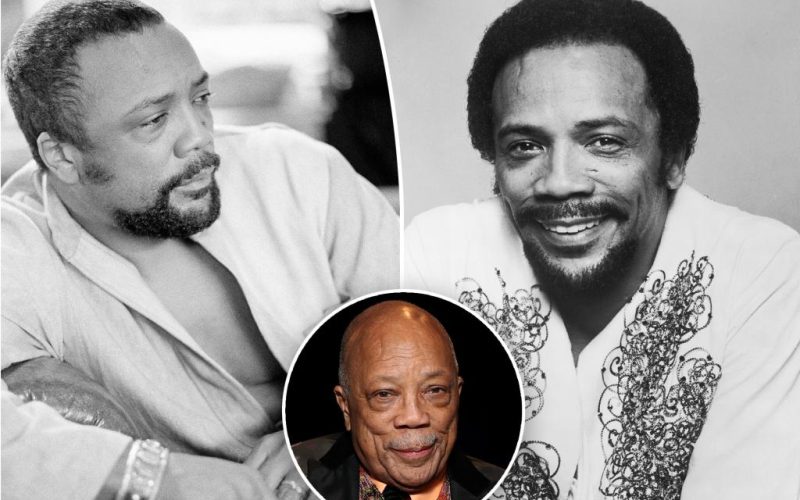Quincy Jones “beat it” — as in his own odds of survival — long before he produced that “Thriller” classic for Michael Jackson.
Fifty years before his death at 91 on Sunday, the legendary producer was given a 1 percent chance of living after he suffered a brain aneurysm in 1974.
“It was scary,” Jones told GQ in 2018. “Like somebody blew my brains out. The main artery to your brain explodes, you know.”
After a seven-and-a-half-hour brain surgery, it was discovered that Jones had a second aneurysm, and with his prognosis grim, his showbiz peers began to plan a memorial service for the jazz trumpeter-turned-producer and arranger for everyone from Count Basie to Frank Sinatra.
“I had one aneurysm that erupted and it didn’t look like I’d make it, so my friends planned a memorial service,” Jones told the Hollywood Reporter in 2008. “Well, I made it, but they had the concert anyway.”
The originally planned memorial service was held at the Shrine Auditorium in Los Angeles, with the 28-time Grammy winner in attendance before he underwent his second brain surgery.
“The doctor said, “The good news is you lived through the first one, but you have another, and we have to go back in two months,” he told THR. “He said I could go to the concert, but I couldn’t get excited. How do I not get excited looking at Ray Charles and Marvin Gaye and Billy Eckstine and Cannonball Adderley?”
Still, having already escaped death from his first aneurysm, Jones braved the service — which also featured actor-comedian Richard Pryor and jazz great Sarah Vaughan — under supervision.
“The neurologist sat with me to make sure I didn’t get into trouble,” he told THR. “I still have a great picture of Sidney Poitier and me hugging each other from that night.”
Reflecting on the experience in 2018, Jones wrote on social media, “I basically attended my own funeral … It was special to see so many people there to celebrate what would’ve been my 41 years of life.”
While Jones would go on to reach historic heights in his career — from his blockbuster albums “Off the Wall,” “Thriller” and “Bad” with Jackson to his own Grammy-winning LPs “The Dude” and “Back on the Block” to his work on the all-star charity single “We Are the World” and the screen and stage versions of “The Color Purple” — he could never play the trumpet again.
“I couldn’t get away with it, man,” he told GQ about feeling pain after continuing to try to play with a surgically implanted clip on a blood vessel in his brain despite doctor’s orders. “I missed the trumpet … I finger all the time. But I can’t touch it.”
And in the end, the music titan — who also cheated death when he decided to skip a party at the home of Sharon Tate on the night that she and four others were murdered by the Manson family in 1969 — looked at it all as a blessing in his creative evolution.
“The surgery became very liberating,” Jones told the Los Angeles Daily News in 1991. “I felt I had nothing to lose … After the surgery, I had this vision of what I wanted to do with my life.”








